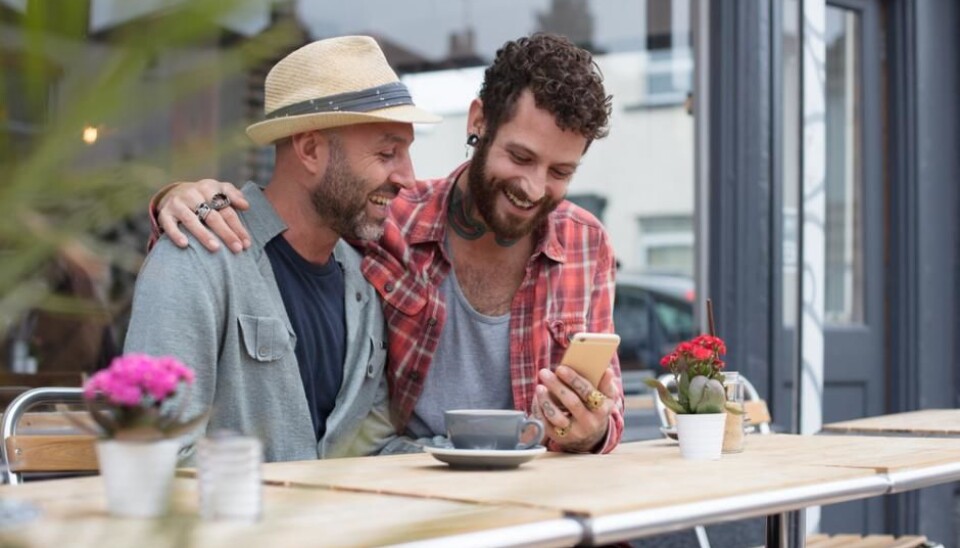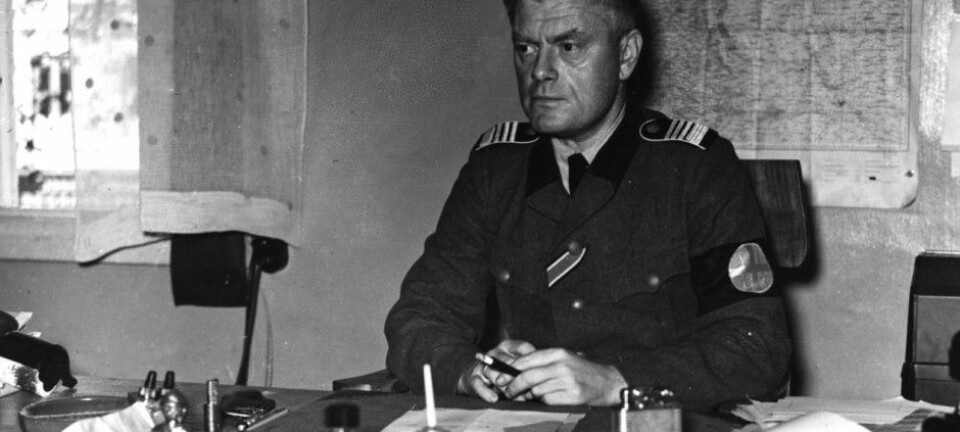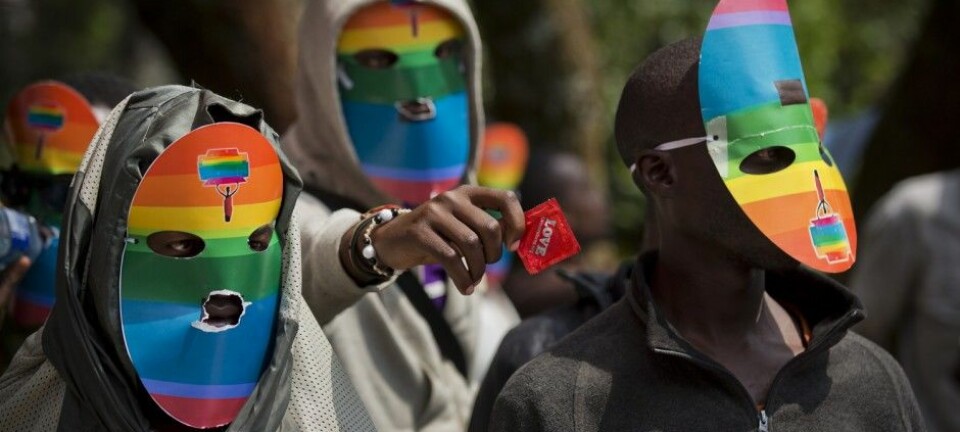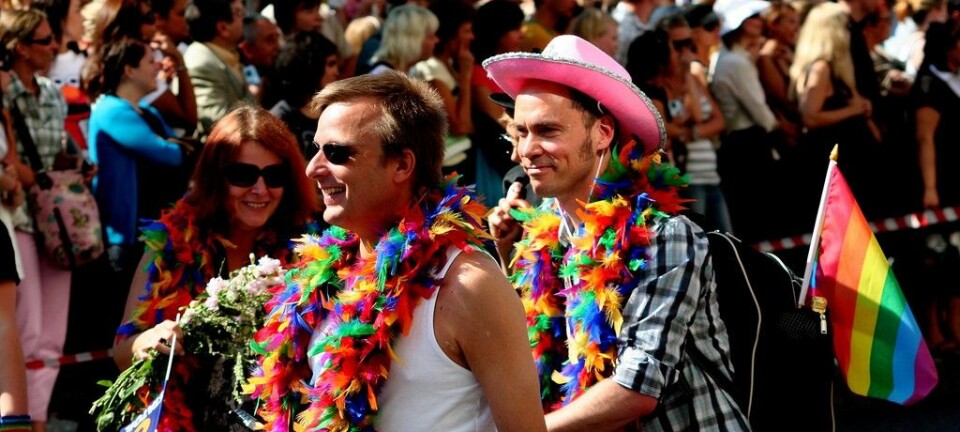
Grindr has changed sex culture among gay men
Dating apps have changed the rules of the game.
A new PhD project has analysed how the dating app Grindr has affected dating culture among gay men.
The study shows that Grindr has led to new ways for gay men to make themselves visible to one another and let each other know that they are available for intimate encounters.
As people adapt to this, it changes the rules of the game and creates a new balance in the intimacy of gay dating culture.
“I found that a lot of people already in relationships searched for sexual partners,” says Kristian Møller, postdoc at the IT University in Copenhagen, Denmark. He has recently completed his PhD thesis looking at Grindr.
“In principle, it’s not surprising. But the interesting thing was the ways non-monogamous relationships were negotiated in relation to the hook-up app interface,” he says.
Møller saw that the use of Grindr among gay men in relationships depends on the agreement established within their relationship.
For example, whether it is an open relationship or a ‘don’t ask, don’t tell’ agreement. Avoiding conflict within relationships can be difficult and requires some work, since by default, Grindr shows everyone who is online in the neighbourhood, including your partner.
Read More: Same-sex marriages are on the rise in Norway
Gay men have long used media
Grindr is a dating app for smartphones, which primarily attracts gay and bisexual men. It displays other users in the area and allows users to contact each other.
“Gay culture has long been mediatised and closely knitted with communication technology. Having sex with other men has always depended on ‘spaces’ [hidden from authorities] in the city. Gay men have used media to create their own spaces, for example through contact advertisements. We use code words for each other and to go under the radar,” says Møller.
This concept of ‘cruising’ refers to coded behaviour where gay men make contact with one another by moving in a particular way or exchanging glances.
The internet took cruising from the street to the internet, but mobile apps have taken it back to the street again, says Møller.
“Grindr has mobilised the digital practice. Cruising has come out in the city again. In that way, the circle is closed. You see someone on the street and think ‘is he gay?’ So you open Grindr and find him,” he says.
Cruising may have gone back to the street but it is now in a different form that is conditioned by modern technology. Cruising is no longer reliant on subtle coded signals or glances, and is instead limited to these apps.
Read More: Love hormone is released when your relationship is going badly
A study of Grindr users
Møller’s interest in Grindr stems from his own use of the app.
“When Grindr came out it felt kind of revolutionary. There was also a certain amount of opposition to digital intimacy culture. I was interested in studying how it was taken up by gay men,” he says.
Through interviews with users and by observing them using the app, Møller observed the significance of the app among gay men.
PhD student Andrew Shield from Roskilde University, Denmark, also studies the use of Grindr and has read Møller’s thesis. According to Shield, it is an interesting methodological project and makes way for further studies.
Shield’s own research shows that Grindr users use the app for more than just finding sexual partners. People use it to access social networks and through Grindr and similar apps they have found friends, houses, and jobs.
Read More: Few Swedes regret sex reassignment surgery
More Grindr studies are needed
There are still many aspects of Grindr and similar apps yet to study, says Møller.
His study shows that the users of Grindr have discovered a surprising way of circumventing the built-in constraints, for example by using code words during chat.
“Some sexual practices are not allowed to be represented in Grindr by the company that owns the app. For example, chem-sex, which is a rising trend,” he says.
Chem-sex refers to sex parties involving the use of euphoric substances. But what role apps like Grindr play in the spread of chem-sex will need to be addressed in further studies.
Møller is especially interested in concepts such as ‘moral panic’ and the ‘dating apocalypse,’ which describe concerns that Grindr will destroy our ability to be intimate or that the use of drugs will spread via Grindr.
“We need a bottom-up perspective. We can only create knowledge that is of benefit to those being studied by looking at these drug and sex practices from a sincere, curious point of view. That’s my guiding principle,” he says.
-------------------------
Read more in the Danish version of this story on Videnskab.dk
Translated by: Catherine Jex









